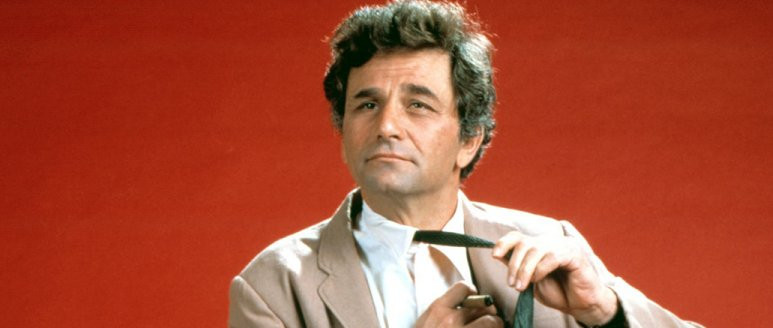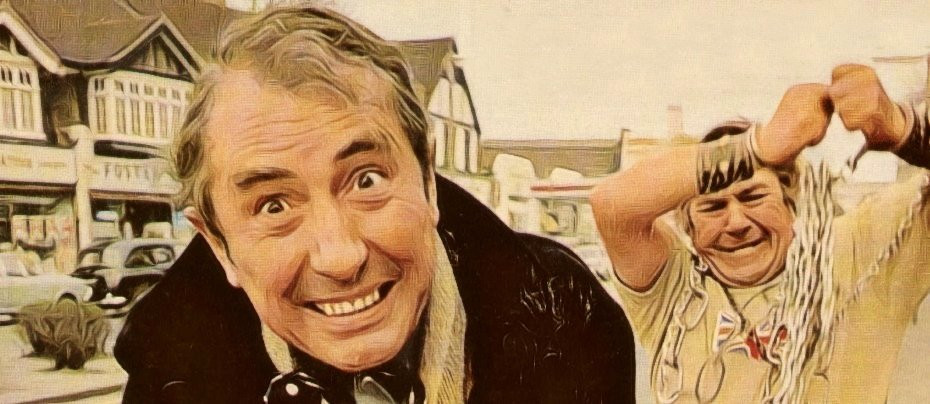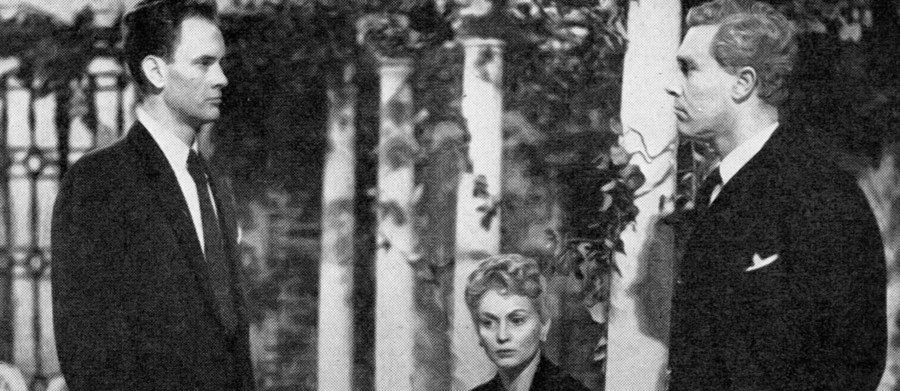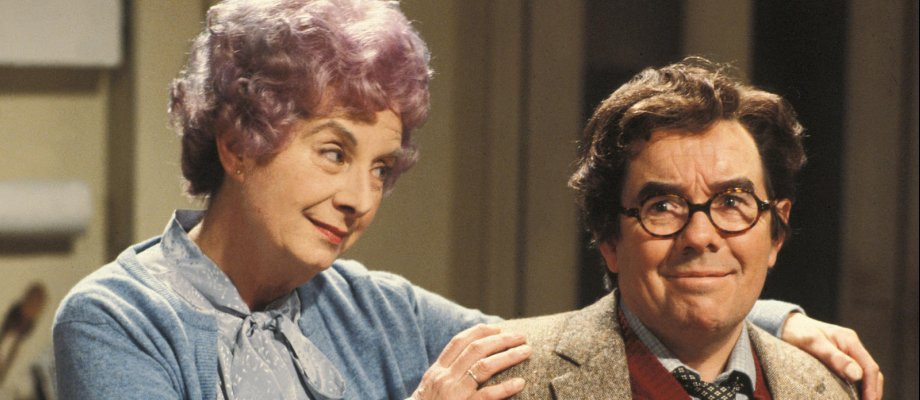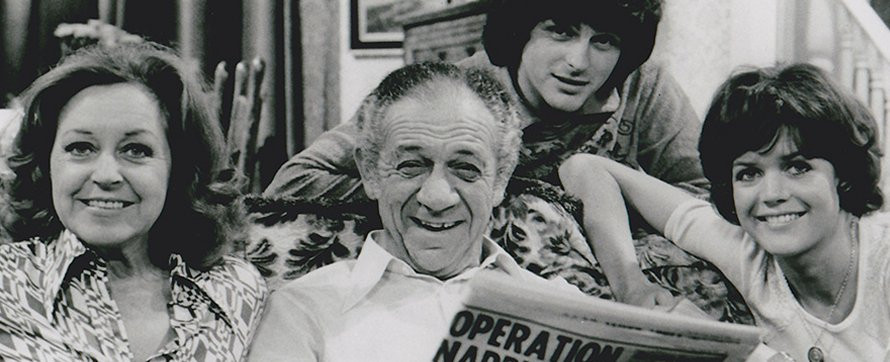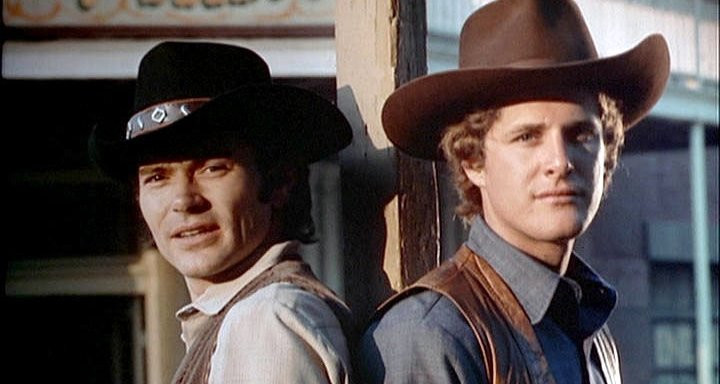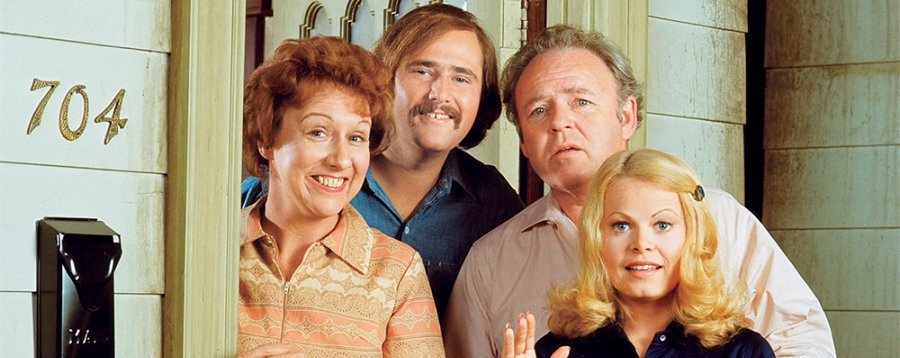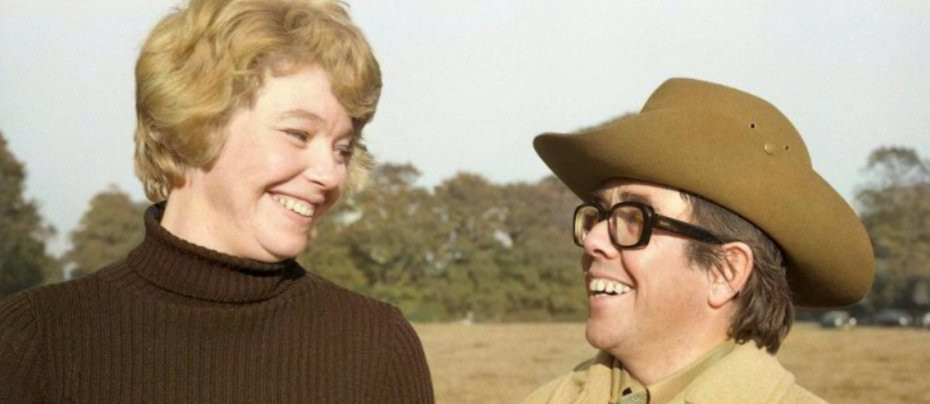
Now Look Here
1971 - United Kingdom“the performances of Corbett and O’Sullivan were spot on”
Now Look Here review by Brian Slade
When one recalls a smothered mummy’s boy played by Ronnie Corbett, it’s understandable to remember the seven series of Sorry for the BBC, with Corbett’s hysterical performance as Timothy Lumsden, Barbara Lott’s dictatorial mother, and the sole word of authority from William Moore as Timothy’s father coming in the much-repeated catchphrase, ‘language Timothy.’ But long before Tim was having his life dominated by his mother, the BBC had brought two series of a similar situation written in 1971 for Corbett by two comedy giants – Barry Cryer and Graham Chapman penning Now Look Here.
On the face of it, the situation Ronnie (his character is also simply named Ronnie Corbett) finds himself in is exactly the same as the one Lumsden found himself in – seemingly trapped in the vice-like grip of his mother when he should be out living an independent life.
There is a different style and situation for the Corbett we witness in Now Look Here. For starters, Corbett breaks the fourth wall and bemoans his situation direct to camera now and again, although it’s an approach used sparingly. In terms of the character’s situation, his mother is the only parent remaining, and the domineering Mrs Corbett is quick to wonder ‘what would your father say’ when disapproving of Ron’s behaviour.
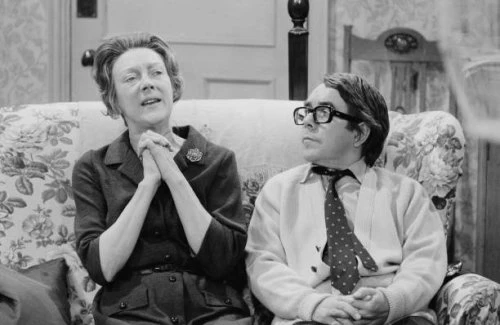
When we first meet Ronnie, he is pacing the lounge of the home in Bramley that he reluctantly shares with Mother, played by Madge Ryan. Ronnie pines for his own home and his own life, preferably in London, to escape the maternal clutches. Mother is largely oblivious to his desire to fly…she continually brings him food he doesn’t want or ask for, criticises any woman who might dare to be listed as a potential suitor, and plays the sympathy card if ever Ronnie should begin to show signs of restlessness.
Work for Ronnie is little better. He works alongside Frank (Richard O’Sullivan), who has his own flat, a beautiful girlfriend and seemingly all the street smarts that Ronnie would like. They are united in their dislike of their boss, Colonel Sutcliffe, played by Croft & Perry favourite Donald Hewlitt.
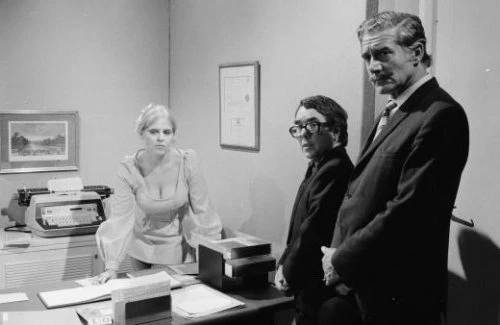
Where Now Look Here actually works better than Sorry is that Ronnie is allowed to progress. He does indeed move out after only a few episodes, albeit only down the road to the spare flat above Frank’s own, and he does tell his boss what he thinks of him, bringing him down a peg or two and gaining him a promotion.
It’s Ronnie’s promotion that gives him the wages to fund the flat rental, but it’s a dive, and the one thing he cannot escape is the interfering from Mother. Much like the future Lumsden there is, however, a part of Ronnie that doesn’t want to fully escape his mother’s ways. She brings casseroles and breakfast and cleans (always announcing she has brough him clean underpants) but nonetheless Ronnie wants to lead a playboy lifestyle.
Having escaped, Ronnie is now exposed to the world he believed he wanted, and he fails dismally at playing the lad about town or the ladies’ man. Eventually, Frank gets to witness Ronnie’s failings first hand as due to the flat’s poor condition he actually lets Ronnie move into his spare room – and even there, Mother tracks him down and interferes. Frank watching in horror as he crashes and burns with women and friends as he tries so desperately to fit in.
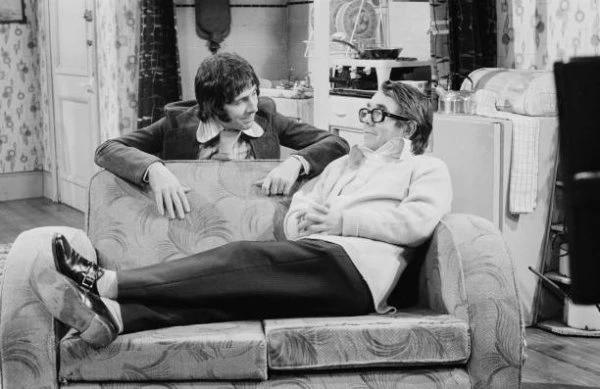
There are some wonderful elements of farce in the show. In the opening episode, Ronnie lies to his boss about having a dental appointment in an effort to get to a job interview but is exposed when Sutcliffe accompanies him to the dentist. Unexpectedly having work done under gas anaesthetic, Ronnie ties himself up in increasingly outrageous lies to cover his tracks as the gas and some subsequent alcohol kick in, and one can see from that episode along just how good Corbett would be in The Two Ronnies.
At the end of the first series, things were tied up quite nicely. Mother has found a new friend in Colonel Sutcliffe, Frank has reluctantly agreed to marry his girlfriend Sally (Linda Hayden) and Ronnie himself, having finally ditched his playacting in trying to woo a young lady, has met and fallen for the local librarian, Laura (Rosemary Leach) and they are to be wed. The show had worked nicely. Hewlett was suitably intimidating as Ronnie’s boss, while O’Sullivan carried the right balance of charm and playboy to be the likeable roommate.
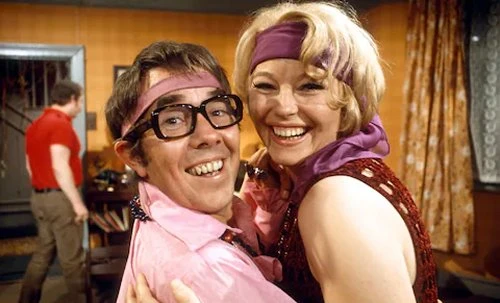
Two years later a second series was made, but the strength of the first series proved to be the undoing of the second. Although Ronnie progressed in life and properly flew the nest, there is no doubting that the second and final series lost some of its drive in the absence of Mother. She did appear here and there, albeit now played by Gillian Lind, but with Ronnie enjoying life as a married couple with Laura, the audience no longer has quite the same empathy with him. O’Sullivan meanwhile was hitting the big time with Man About the House, so with no Frank either, the show went on the downward slope.
Now Look Here is an interesting insight into early Two Ronnies talents. Corbett is a verbal and physical dynamo and with the fourth wall approach we can even see snippets of the great chair persona he would display for so many years. Messrs Barker and Corbett both had huge success in comedies away from one another, and perhaps Corbett’s success in Sorry is part of the reason Now Look Here is rarely even acknowledged – Corbett himself gave it no mention in his autobiography. However, the writing is good, the performances of Corbett and O’Sullivan were spot on and so it’s safe to say that Now Look Here merits recognition for being a thoroughly entertaining bit of comedy farce from one of television comedy’s finest.
Seen this show? How do you rate it?
Seen this show? How do you rate it?
Published on June 16th, 2023. Written by Brian Slade for Television Heaven.


